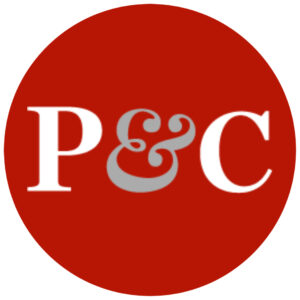The government, often with the help of whistleblowers, has had some success recently using the False Claims Act in enforcement actions against home health agencies in fraud cases.
In March, a federal court decision affirmed that providers who fail to provide the required level of home healthcare for which they receive Medicare and Medicaid payments may be required to pay significant penalties under the False Claims Act.
In US v. Dynamic Visions, the court granted judgment for the government, finding the defendant home health care agency and its sole owner liable for submitting false claims that represented compliance with certain Medicaid regulations. A physician-signed Plan of Care (POC) is required for home healthcare services. In the Dynamic Visions case, the services were provided without legitimate POCs.
In addition to treble damages in the amount of just over $900,000, the court awarded the maximum per claim penalty of $11,000 for each of 41 claims. The per claim penalty was based on the totality of the circumstances, including the harm done to Medicaid and that the number of false claims “understate[d] the severity” of the conduct.
Currently home health services are covered under Medicare Hospital Insurance (Part A) and Supplemental Medical Insurance (Part B) and are furnished on a visiting basis in a beneficiary’s home either by or under arrangements with a home health agency that participates in Medicare or Medicaid programs.
Covered services include medically reasonable and necessary skilled care (nursing, physical therapy, occupational therapy and speech language therapy), medical social services and home health aide services.
To be eligible for this home-health benefit, a beneficiary must be confined to the home, under the care of a physician or allowed practitioner, receiving services under a plan of care and be in need of the covered services. Home healthcare agencies must comply with certain conditions that include licensing and quality of care requirements.
Other recent enforcement actions under the False Claims Act have demonstrated additional ways in which fraud and false claims for payment can undermine this vital home healthcare program.
For example, the US Attorney’s Office for the Eastern District of New York and the New York state attorney general alleged in a recent case that two home healthcare agencies failed to pay the amount of wages that New York requires home healthcare agencies to pay Medicaid home healthcare workers and billed Medicaid for that amount anyway.
Paying required wages to the workers who care for these beneficiaries is essential to ensuring quality care. The healthcare agencies paid a total of $5.4 million to settle the Medicaid allegations and also paid $1.5 million to be distributed to the affected workers.
Providers of home healthcare services who pay kickbacks also have been the target of recent False Claims Act enforcement actions against individuals. Although these cases involved typical kickbacks in the form of cash payments, a recently settled False Claims Act case initiated by a qui tam (whistleblower) action against a home health agency involved allegations of kickbacks that took another form.
In that case, the home health agency and affiliated companies paid $17 million to settle allegations that they paid kickbacks to a retirement home operator by purchasing two of its home health agencies. The US Department of Justice said in a statement that the government would continue to pursue kickbacks “no matter the disguise those kickback arrangements might wear.”
Billing for services that were not eligible for payment or for services not provided also has been the basis of enforcement actions involving the home healthcare benefit. In a recent criminal case against a home health agency and its owners, DOJ presented evidence that the overwhelming number of patients for whom claims were submitted did not qualify for the benefit or for the type of care for which the government was billed.
As the population ages, home healthcare for seniors will become an even bigger need and bigger business. Whistleblowers can play an important role in helping the government pursue and deter fraud that undermines these programs. This will be critical to ensuring that quality healthcare is available for vulnerable seniors.
If you are aware of Medicare fraud or Medicaid fraud being committed by a home health agency or any other healthcare provider and would like to learn more about becoming a whistleblower, contact Phillips & Cohen for a free, confidential review of your case.

